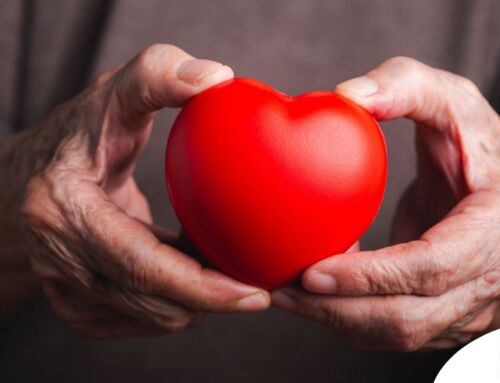Stress management in a normal world is tough. Add in a global pandemic to our everyday concerns and it becomes very challenging. But stress management is critical to our heart health, and of course, our mental health. How does it really affect us and better yet, what can we do to manage our stress better?
How does stress affect us?
There are three types of stress:
- Acute stress – the kind of stress that occurs in an emergency situation (like a car accident)
- Episodic acute stress – the kind of stress that occurs during “emergency” situations and occurs on a regular basis (like certain high-risk, demanding jobs, such as health care)
- Chronic stress – the kind of stress that is ongoing, never leaving room for recovery, such as ongoing financial stress or dysfunctional family relationships
So how do these kinds of stress affect us?
Directly
Stress can manifest in fairly immediate and physical ways. Certainly not limited to, but including:
- Headaches
- High blood pressure
- Diabetes
- Anxiety/Panic attacks
- Depression
- Skin issues
- Abdominal/Digestive issues
Indirectly
From the American Heart Association:
“Mental health can positively or negatively impact your physical health and risk factors for heart disease and stroke, according to “Psychological Health, Well-Being, and the Mind-Heart-Body Connection,” a scientific statement in the American Heart Association journal Circulation.
Stress may contribute to poor health behaviors linked to increased risk for heart disease and stroke, such as:
- Smoking
- Overeating
- Lack of physical activity
- Unhealthy diet
- Being overweight
- Not taking medications as prescribed
Your body’s response to stress may be:
- A headache
- Back strain
- Stomach pains
Stress can also:
- Zap your energy
- Wreak havoc on your sleep
- Make you feel cranky, forgetful or out of control
A stressful situation sets off a chain of events. Your body releases adrenaline, a hormone that temporarily causes your breathing and heart rate to speed up and your blood pressure to rise. These reactions prepare you to deal with the situation — the “fight or flight” response.”
5 Techniques for better stress management
With stress management, recovery time is critical. Recovery time allows our bodies to recuperate and regain a physical and mental balance. Recovery time also has important impacts regarding our body’s overall healing processes.
How can we build recovery time for ourselves?
Time with family or friends. Spending time in the company of good friends or family members can be beneficial in so many ways. Giving, receiving and feeling love gives our minds and bodies a break. And keeping strong social connections means that we have people we can talk to about our stressors.
Exercise. As per Beaumont Health, “Exercise reduces your body’s production of the stress hormone cortisol. It also releases endorphins, which are known as the body’s feel good chemicals. But they don’t just make you feel good, they also help combat stress. The key to incorporating regular exercise into your life is to find activities you enjoy. If working out feels like a chore and is just another thing you have to do, the stress-reducing benefits may not be as great.”
Getting enough rest and sleep. This seems fundamental, but with everything going on in our world, taking a break and being sure to get enough rest can be challenging. Not only do we need physical rest, we need mental rest. When waiting in line at the grocery store, or doctor’s office, give your brain a break by closing your eyes instead of opening your phone.
Laughter and joy. While this may not sound like a “serious” stress management technique, it actually is. Laughter and enjoying moments of joy increases our oxygen levels, releases endorphins, reduces inflammation and actually increases our immune system’s ability to fight disease! Watch a silly movie or comedy show, play with a pet or spend time with funny friends.
Specific relaxations methods:
- Yoga – guided yoga is very helpful for calming the body and mind
- Breath mindfulness – regular, consistent deep breathing has been proven to lower cortisol and even temporarily lower blood pressure
- Meditation – meditation has been shown to reduce blood pressure and gives us mental recovery time, which translates into physical recovery
Wrap Up
Although it’s a good goal, we can’t necessarily reduce the amount of stress in our lives. But when we implement some stress management techniques, we’re sure to have more control over how stress affects us. Stress management doesn’t have to be scary or difficult, like everything else, it’s one step at a time.
~ ~ ~
Do you have questions about how you can better support your loved one while they age in place in South Florida or regarding homecare in general? Please contact CareGivers of America here: Contact or call us toll free: 800-342-4197
To join our amazing mailing list where you’ll receive special content, click here.
*No information in this article is to be taken as advice, medical or otherwise. This post is not sponsored, but may contain external links to websites, articles or product examples. External links are used for example or refence purposes only and these links do not indicate specific product or website endorsement by CareGivers of America.






